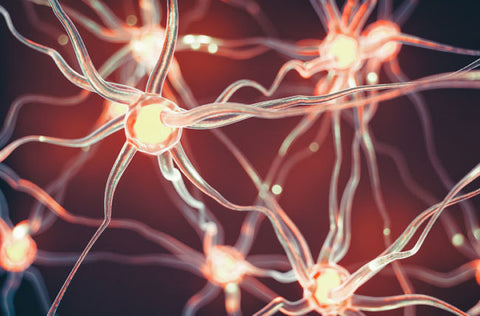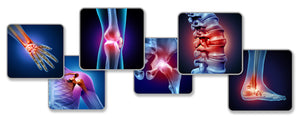Move over ibuprofen, magnesium is in the house.
How many times have you been tempted to reach for a bottle of good ol' pain killers that you'd get from the dep to relieve that muscle ache that never seems to go away? Too many times, right?
I get you, whether it be ibuprofen, acetaminophen, naproxen all of these things come with side effects, and ideally, we'd like to have a remedy that doesn't come with a cost. In fact, many of these drugs have been shown to
- Decrease a series of important nutrients like folate, iron, melatonin, and even our master antioxidant glutathione
- Can increase the risk of developing dizziness or headaches
- Can cause indigestion, and if taken too frequently an ulcer can occur
- Cause kidney and liver damage
- Increased risk of heart attack
So what's the solution? Magnesium.
Magnesium has been shown to be involved with 3200 functions in the body and help with all kinds of different types of pain as we'll get into below. The main reason for this is because magnesium can act as a muscle relaxant and helps with the contractions and hydration of tissues and nerves.
1. Magnesium can help as an analgesic adjuvant
Even though magnesium has no direct analgesic effect, it's been shown to inhibit calcium ions from entering cells by blocking N-methyl-D-aspartate (NMDA) receptors. NMDA receptors in particular have been shown to be the main antagonists related to pain and cause a antinociceptive effect. This means that even if there isn't necessarily a lot of pain present, the central nervous system is hyper sensitive and can thus make it feel like it's unbearable. Calcium, despite it being a sedative-like mineral, has also been shown to increase joint pain, stiffness, or discomfort if there is an accumulation in the cells, hence why magnesium can be so helpful.

2. Magnesium can help with neuropathic pain
Neuropathic pain is a sensation one feels if there is damage to or a dysfunction of the peripheral/central nervous system. This could include spinal cord injury, multiple sclerosis, diabetic neuropathy, radiation injury, complications of chemotherapy and more. The main reason for this neuropathic pain is unknown, but magnesium has been shown to help ease off acute pain. The mechanism of action is thought to be due to how magnesium ions can help promote peripheral nerve repair by inhibiting inflammation, and again, stopping calcium ions from entering cells if there is an excess.

3. Magnesium can help with dysmenorrhea
For those unaware, dysmenorrhea is a condition in which women struggle with during their menstrual cycle where they develop painful cramps. This is due to the overproduction of prostaglandins in the uterus which stimulate contractions and can be painful. Magnesium has been shown to inhibit the production of prostaglandins, which reduce the contractions and increase muscle relaxation by competing with calcium for entry into the uterine wall's cells. Conversely, many women lose minerals as a result of a bleed, and individuals who have severe dysmenorrhea have been shown to be magnesium deficient.

4. Magnesium can help with headaches
A headache is a headache no matter how you put it, and no one wants to feel it. The exact cause of headaches can be due to a number of things, such as dehydration, blood sugar issues, food sensitivities, muscle tension, myofascial pain, platelet aggregation, injury, and more. However, without getting too much into the specifics, if one is struggle with an injury, tightness, dehydration, tension, or even platelet aggregation, magnesium has been shown to help with all of those.

5. Magnesium can help with muscle soreness
Aside from what we mentioned above, magnesium being a muscle relaxant which can help with tight muscles, thus helping with soreness, magnesium has other features. Most people who struggle with muscle pain, especially from intense exercise, is due to the fact that there is a build up of lactic acid. Magnesium actually helps get glucose in the cells thus help blunting the pain in which we can get from that lactic acid build up and offer better recovery.

If you're someone who has been dealing with any of these types of pain, or similar, we highly recommend trying one of our magnesium supplements which you can find here!
Hope this was helpful!


